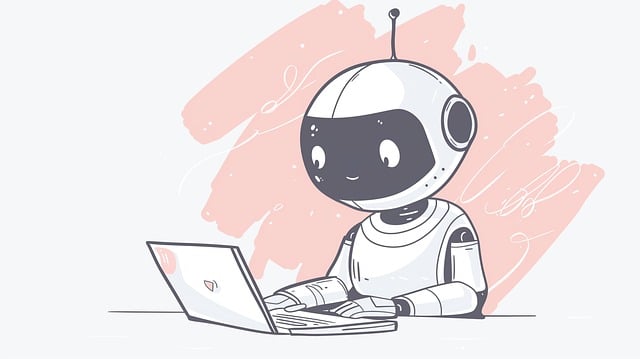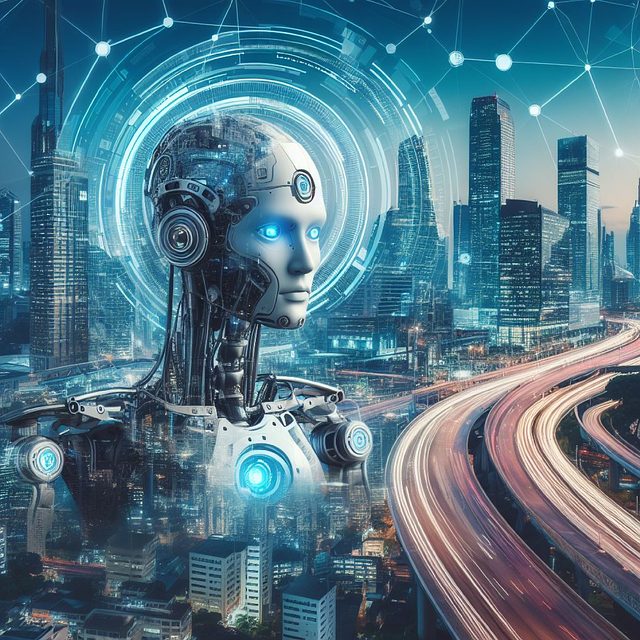Chatbots powered by artificial intelligence (chatbot AI) are transforming user interactions with technology, offering sophisticated and personalized experiences through natural language processing (NLP). These chatbots, equipped with advanced algorithms, machine learning models, and large datasets, continuously learn and improve to handle diverse user requests. NLP is the cornerstone of chatbot AI, enabling machines to understand, interpret, and generate human language naturally, facilitating complex conversations and enhancing interaction accuracy. Chatbot AI's versatility makes it indispensable across sectors, improving efficiency, accessibility, and customer satisfaction, while challenges like ethical considerations and data privacy require ongoing attention.
“Unleashing the potential of conversational interfaces, chatbot AI has revolutionized interactions between humans and machines. This article delves into the intricacies of this technology, offering a comprehensive guide for all things chatbot AI. From understanding the fundamentals to exploring the advanced capabilities enabled by Natural Language Processing (NLP), we unravel the secrets behind these intelligent assistants. By examining current trends and potential challenges, readers gain insights into the future of chatbot AI and its integration with NLP.”
- Understanding Chatbot AI: A Basic Overview
- Natural Language Processing (NLP): The Powerhouse Behind Chatbots
- How NLP Enables Advanced Chatbot Functionality
- Future Prospects and Challenges of Chatbot AI with NLP Integration
Understanding Chatbot AI: A Basic Overview

Chatbots powered by artificial intelligence (chatbot AI) are transforming the way we interact with technology, offering sophisticated and personalized user experiences. At their core, these chatbots leverage Natural Language Processing (NLP), a branch of artificial intelligence that enables machines to understand, interpret, and generate human language. NLP powers the conversation aspect of chatbot ai, allowing them to comprehend user queries, extract relevant information, and respond in a contextually appropriate manner.
Chatbot AI combines advanced algorithms, machine learning models, and vast datasets to continuously learn and improve over time. This adaptability enables them to handle diverse user requests, from answering basic questions to performing complex tasks like booking travel arrangements or offering customer support. The versatility of chatbot ai makes them indispensable across various sectors, enhancing efficiency, accessibility, and customer satisfaction.
Natural Language Processing (NLP): The Powerhouse Behind Chatbots

Natural Language Processing (NLP) serves as the backbone and powerhouse behind the capabilities of AI chatbots. This advanced technology enables machines to understand, interpret, and generate human language, allowing for more natural and meaningful interactions between users and chatbots. By leveraging NLP algorithms, chatbot AI can process user queries, extract key information, and respond in a contextually relevant manner, making conversations fluid and intuitive.
NLP plays a crucial role in enhancing the accuracy and sophistication of chatbot ai responses by enabling semantic analysis, sentiment detection, and intent recognition. These capabilities ensure that chatbots can comprehend not just the literal meaning of words but also the underlying nuances and user intentions. As a result, users experience more personalized and human-like interactions, fostering increased trust and satisfaction in their conversations with AI chatbots.
How NLP Enables Advanced Chatbot Functionality

Natural Language Processing (NLP) is a powerful tool that underpins the advanced functionality of modern AI chatbots. By enabling machines to understand, interpret, and generate human language, NLP allows chatbots to engage in complex conversations with users. This technology facilitates the processing of user queries, extracting key information, and providing contextually relevant responses. With NLP, chatbots can comprehend various linguistic nuances, including sarcasm, idioms, and ambiguities, ensuring more natural and intuitive interactions.
NLP enables feature-rich chatbot ai experiences by supporting tasks such as sentiment analysis, intent recognition, and entity extraction. Sentiment analysis helps chatbots gauge user emotions, allowing them to respond empathically or adapt their tone accordingly. Intent recognition identifies the user’s purpose, enabling the bot to perform specific actions or provide targeted information. Entity extraction pinpoints important entities within user messages, aiding in more accurate understanding and personalized responses. These NLP capabilities collectively enhance chatbot performance, making interactions smoother and more human-like.
Future Prospects and Challenges of Chatbot AI with NLP Integration

The integration of Natural Language Processing (NLP) into chatbot AI is paving the way for more sophisticated and human-like interactions. As technology advances, we can expect chatbots to become even more adept at understanding complex queries and providing nuanced responses, enhancing user experiences across various sectors. With NLP, chatbots can interpret context, sentiment, and subtle nuances in language, enabling them to engage in more meaningful conversations. This evolution promises improved customer support, personalized recommendations, and efficient information retrieval.
However, challenges remain. Ensuring chatbot AI remains ethical and unbiased is paramount. As these systems learn from vast datasets, they may inherit and perpetuate existing societal biases. Moreover, the dynamic nature of language requires constant adaptation and updates to keep up with evolving slang, idioms, and cultural references. Privacy and data security are also critical considerations as chatbots process sensitive user information. Addressing these challenges will be essential to unlocking the full potential of chatbot AI while maintaining public trust and ensuring responsible development and deployment.
Chatbot AI, powered by Natural Language Processing (NLP), is transforming human-computer interaction. By understanding and generating human language, chatbots offer enhanced user experiences across various sectors. As technology advances, NLP integration will continue to drive the development of more sophisticated chatbot ai, addressing challenges while unlocking new possibilities for efficient, intuitive communication.
